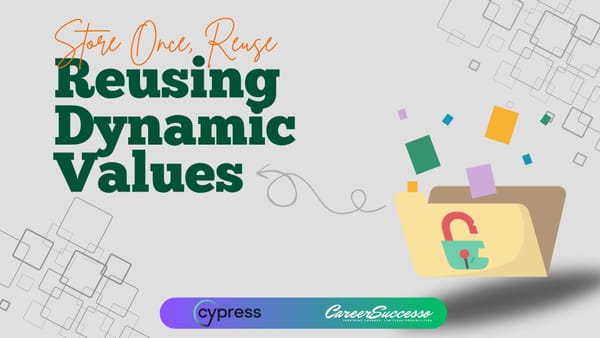How to Prepare for ISTQB Foundation Level
If you’re new to software quality assurance, getting a solid qualification can make a big difference. During my internship, I took the…

If you’re new to software quality assurance, getting a solid qualification can make a big difference. During my internship, I took the ISTQB Certified Tester Foundation Level exam v2018 and passing it not only increased my knowledge but also gave me a valuable qualification for my career. Here are some tips on how to prepare for the ISTQB CTFL Exam.
1.Overview of the ISTQB Foundation Level Exam
The ISTQB® Certified Tester Foundation Level (CTFL) certification exam is a rigorous assessment designed to evaluate candidates’ understanding of software testing concepts. It consists of multiple-choice questions that assess candidates’ knowledge of the syllabus. The exam covers topics such as testing principles, testing types, testing throughout the software development lifecycle, static testing, test analysis and design, test management, defect management and test tools.
2. Study Materials
2.1. Syllabus of ISTQB Foundation Level
To prepare for the ISTQB Foundation Level Exam, it is highly recommended to utilize the Syllabus. By studying these syllabus, candidates can enhance their understanding of fundamental concepts such as test design techniques, test management, and the principles of software testing.
The syllabus is more than just a list of topics. It includes general objectives, a glossary, learning objectives for different knowledge areas, key concepts, and references to literature and standards. This comprehensive approach ensures a deep understanding of the subject matter and makes it an essential resource for exam preparation. Reading the syllabus offers a detailed roadmap beyond just a basic overview and becomes a valuable asset in achieving success in the ISTQB Foundation Level Exam.
These resources serve as trusted guides for exam preparation and enable candidates to gain the knowledge and skills necessary for success in the ISTQB Foundation Level Exam.
2.2. Online Resources for Exam Preparation
In my efforts to prepare for the ISTQB Foundation Level Exam, I have received great support from online platforms. One particularly helpful resource is the Udemy course called “ISTQB Certified Tester — Foundation Level 2023,” an authorized program offered by my company. This Udemy course has been extremely beneficial, providing thorough coverage of important topics in a well-organized manner.
Furthermore, I am pleased to announce that I obtained a special opportunity through exact pro, which gives me free access to the ISTQB CTFL training course. This offer was tailored exclusively for undergraduate students from partner universities and demonstrates a dedication to supporting the educational journeys of future professionals.
2.3. Practice Tests and Mock Exams
Throughout my ISTQB Foundation Level Exam readiness, I’ve prioritized thorough practice, and I highly recommend the same to all aspiring candidates. To complement my preparation, I completed three sample tests available on the ISTQB website, each providing valuable insights into the exam format and question styles.
Additionally, I found great benefit in practicing mock tests on GURU99. Their diverse range of questions and real-world scenarios helped me refine my problem-solving skills and time management. Considering the dynamic nature of the exam, incorporating these practice tests into your study routine ensures a well-rounded preparation that not only boosts confidence but also enhances your overall performance on exam day.
3. Test-Taking Tips
3.1. Understanding the Exam Format and Structure
Familiarize yourself with the exam structure, including the number of questions, total points, passing score, and any additional time allowances. Understanding the format enables you to approach the exam with confidence. For the ISTQB Foundation Level Exam, there are 40 questions, each carrying one point, totaling 40 points. To pass, you need a minimum of 26 points.
The specific learning objectives for each chapter indicate their knowledge levels as K1: remembering, K2: understanding and K3: applying. The definitions of all terms listed as keywords just below chapter headings should be remembered (K1), even if not explicitly mentioned in the learning objectives. It is important to focus on subjects within the K1 and K2 categories as questions from these areas assess your ability to memorize terms and comprehend statements accurately.
3.2. Answering Multiple Choice Questions
Master the art of answering multiple-choice questions by carefully reading each option before selecting the answer. Eliminate obviously incorrect choices to enhance your chances of choosing the correct one.
3.3. Managing Time During the Exam
Practice time management during your preparation by setting time limits for practice tests. The exam duration is 60 minutes, with an additional 15 minutes for non-native English speakers, providing a total of 75 minutes to complete the test. Allocate your time wisely based on the expected duration for each knowledge level. Follow the suggested time allocation for each knowledge level such as 1 minute for K1 level questions, 1 to 2 minutes for K2 level questions, and 3 minutes for K3 level questions. So, during the actual exam, allocate time wisely across different sections, ensuring that you have sufficient time to review and revise.
Adopting these exam preparation and test-taking strategies, along with a deep understanding of the exam structure and time allocation, will not only boost your confidence but also contribute to a more effective and successful ISTQB Foundation Level Exam experience.





